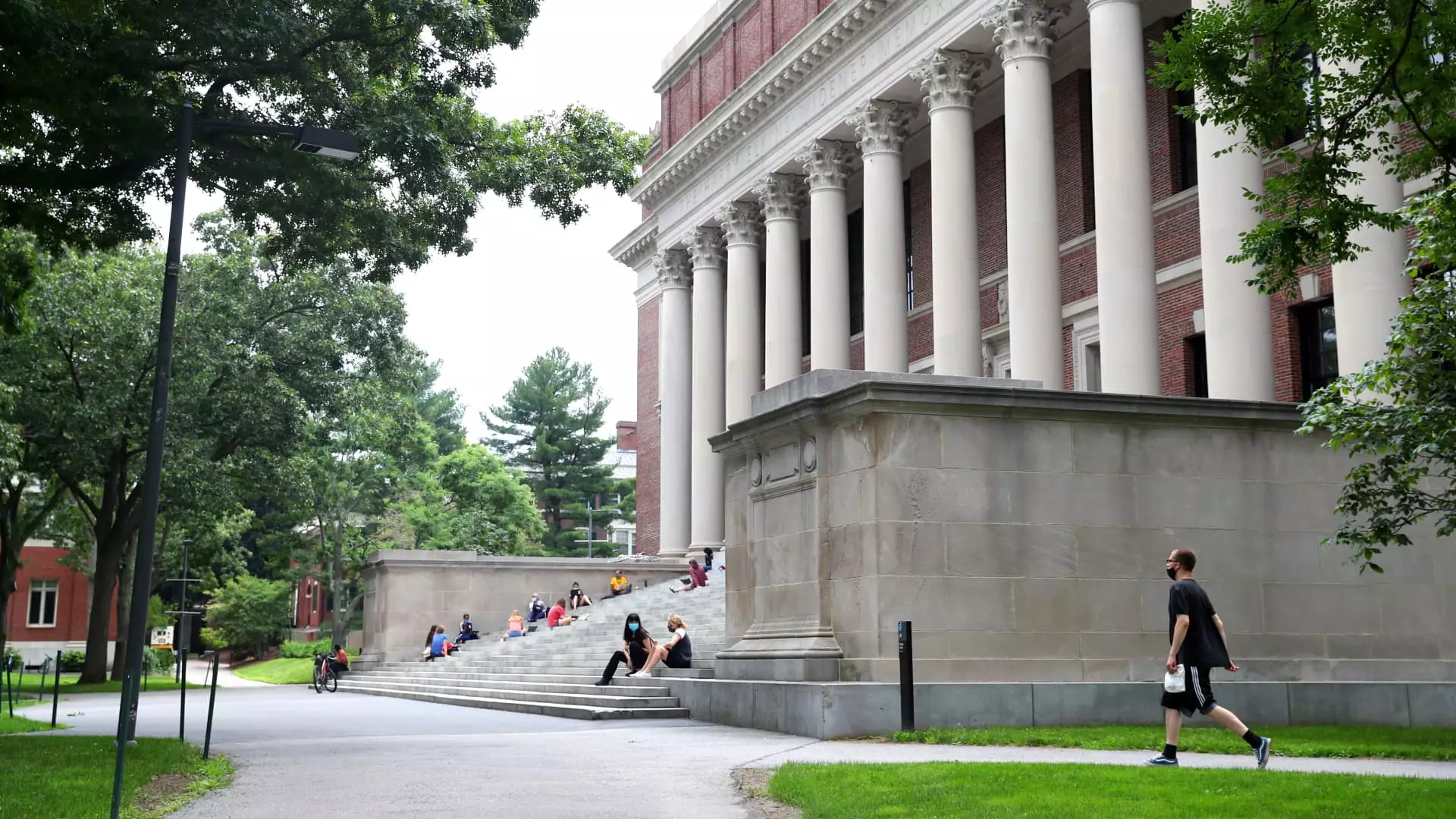In the realm of college admissions, the position of Harvard University as the ultimate “dream” school among college applicants has been reestablished. Despite facing challenges and controversies in recent times, Harvard has managed to surpass its competitors and secure the top spot once again. This shift was highlighted in a recent survey conducted by The Princeton Review among nearly 8,000 college applicants.
Following the resignation of Harvard President Claudine Gay amidst allegations of plagiarism and disputes over her congressional testimony regarding antisemitism on campus, there was a wave of uncertainty surrounding the university. However, the resilience of Harvard prevailed, and it maintained its esteemed position in the eyes of students. According to Robert Franek, editor-in-chief of The Princeton Review, the value of a degree from Harvard continues to be a top concern for college-bound individuals.
The early admissions cycle of this year reflected the tumultuous events occurring globally, such as the attack on Israel by Hamas, which influenced the application process. Despite a decrease in early applicants to the Class of 2028, Harvard saw an increase in its acceptance rate from the previous year. This unexpected shift in acceptance rates may have encouraged more students to reconsider applying to Harvard through the regular decision process.
One of the major hurdles for students aspiring to attend Harvard or other prestigious institutions is the financial aspect. The cost of a college education plays a significant role in decision-making, and the availability of financial aid greatly impacts the choices students make. Harvard’s diligent financial aid policies, particularly for families with incomes below $85,000, have been instrumental in making the dream of attending the university a reality for many.
As the college admissions process progresses, students and their families are faced with the task of determining how they will fund their education. Financial aid award letters, which are typically sent alongside admission decisions, play a crucial role in this aspect. However, delays in the processing of financial aid applications, such as the new Free Application for Federal Student Aid (FAFSA), may create uncertainties for students awaiting their aid packages.
The upcoming National College Decision Day on May 1 adds another layer of pressure for students to make informed choices about their college education. The availability of grants, scholarships, work-study opportunities, and student loans greatly influences the decision-making process. With a vast majority of families expressing the necessity of financial aid to fund their education, the importance of scholarships and grants cannot be overstated.
The shifting dynamics of college admissions, particularly in relation to Harvard University, bring to light the multifaceted considerations that students face when navigating the path to higher education. Despite the challenges posed by financial constraints and application delays, the allure of attending a prestigious institution like Harvard remains strong for many aspiring scholars. By understanding the interplay of factors influencing college admissions, students can make informed choices that align with their academic and financial goals.


Leave a Reply